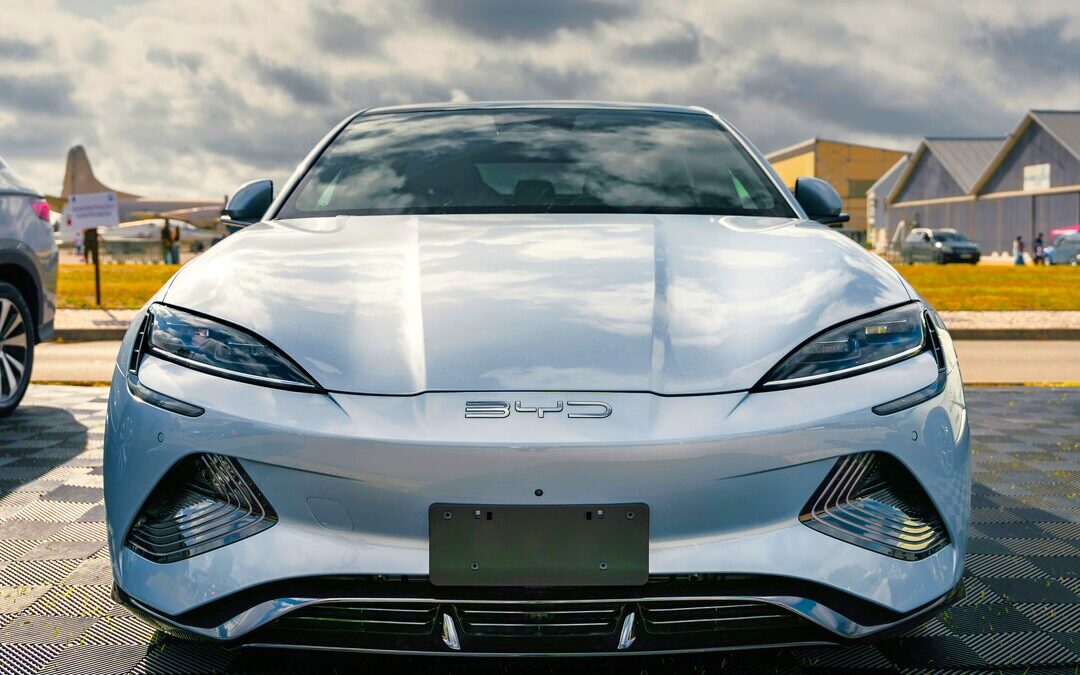China Strengthens Grip on EV Market as BYD Overtakes Tesla in Sales
China’s EV surge reshapes global auto market as BYD overtakes Tesla and legacy automakers lag behind.
Chinese automaker BYD overtook Tesla in global battery electric vehicle sales for the first time in 2024, according to a new report from the International Council on Clean Transportation.
The ICCT’s third annual Global Automaker Rating found that China now accounts for over 11 million EVs sold annually — more than half of global sales — and Chinese automakers are leveraging this scale to establish global leadership across key market and performance metrics.
BYD’s BEV sales rose 25 percent from 2023 levels, while its total sales of BEVs and plug-in hybrid EVs increased 47 percent.
With this surge, BYD surpassed Tesla in total BEV units sold globally. Tesla, while maintaining its 100 percent BEV production share, saw little year-over-year growth and retained the top spot in ICCT’s overall rating, driven by strong scores in technology and strategic vision.
Five of the six highest-ranking companies for EV market share were Chinese: BYD, SAIC, Geely, Chang’an, and Chery.
Geely and SAIC achieved their 50 percent EV sales share targets one year ahead of schedule, thanks to the country’s robust domestic demand and expanding model coverage.
China-based automakers also claimed the top five positions in ZEV class coverage, a measure of how many vehicle segments an automaker serves with zero-emission models.
EV Technology Improves Across the Board
Across the industry, the ICCT noted improvements in BEV energy efficiency, charging speed, and driving range.
The average energy consumption among the top 21 automakers fell from 135 watt-hours per kilometer in 2023 to 132 Wh/km in 2024. Tata Motors led in efficiency, followed by Tesla and Toyota.
GM, Honda, Geely and Chery made notable strides by introducing high-performance BEV models. Honda’s release of the Prologue in the U.S. helped double its EV sales, while Chery nearly tripled its BEV and PHEV volume, led by its iCAR 03 model.
Strategic Gaps Remain in the West
While Chinese automakers pulled ahead, many Western firms showed limited progress. European manufacturers such as BMW and Mercedes-Benz made moderate gains in EV performance and green steel procurement, but overall struggled to match the pace of their Chinese rivals.
In the U.S., General Motors improved its overall score, but it still lags in market dominance. Ford and Stellantis showed only incremental progress.
Meanwhile, Toyota, Mazda, and Suzuki remained among the lowest-rated manufacturers. Suzuki again scored zero on ZEV-equivalent sales, reflecting its negligible EV presence.
The ICCT’s “green steel” metric, introduced this year, assessed automakers’ use of low-carbon steel in manufacturing. Mercedes-Benz, BMW and Volkswagen scored highest, alongside Ford and GM, thanks to public commitments and procurement agreements.
Tata Motors Breaks Out of the Bottom Tier
Tata Motors became the first major Indian automaker to move out of the “laggards” group, achieving gains in battery recycling, model diversification, and energy consumption performance. Its introduction of the Ace Mini Truck expanded its class coverage and helped lift its technology scores.
The report emphasized that only four automakers—Tesla, BYD, Geely, and SAIC—currently meet the ZEV sales share levels aligned with upcoming regulatory targets in key markets such as the EU, U.S., and China.
While lobbying patterns diverged, Ford stood out for its support of clean vehicle policies, in contrast to Toyota’s continued opposition to ZEV regulations.
“The global EV race is accelerating, and China’s early investments are clearly paying off,” said ICCT President and CEO Drew Kodjak. “For Western and Japanese automakers, catching up is no longer just a regulatory imperative—it’s essential for staying in the game.”
Automaker Scores: Leaders and Laggards
In ICCT’s composite scorecard, Tesla led with an overall score of 84 out of 100, followed by BYD at 70. Geely at 56, SAIC at 53, BMW at 52 and Stellantis 52 rounded out the top six.
At the bottom were Mazda at 12, Suzuki at 9 and Nissan at 23. Most automakers improved their scores over 2023, with 14 showing gains.
The ICCT’s Global Automaker Rating evaluates 21 of the world’s largest manufacturers based on market share, technological performance, and strategic vision for a zero-emission transition.
The 2024 edition features updated metrics for green steel use and battery recycling, providing a more in-depth examination of supply chain decarbonization.
Also Read:
Chinese Carmaker BYD Overtakes Tesla in Europe as EV Market Grows in April
Nirmal Menon
Related posts

Subscribe
Error: Contact form not found.


